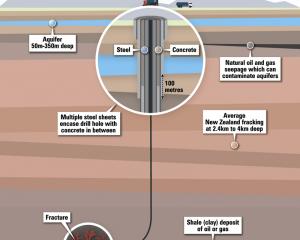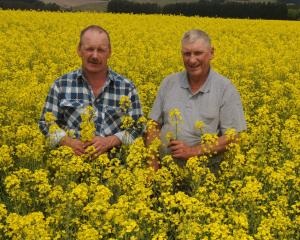
Today, Bill Currie, Wayne O'Hara and Richard Butler's company Powerhouse Wind will unveil its small wind turbine prototype to a group of engineers and designers at Otago Polytechnic.
Constructed with a teetering single 1.8m blade, it features two equally-spaced counterweights that allow the machine to operate dynamically like a three-bladed windmill while maintaining the advantages of having a solo rotor.
One of these is protection of the turbine in high winds, because as the wind speed increases, the blade adjusts accordingly to control the power and torque output.
Working on the project full-time for the past 16 months, former Fisher and Paykel engineers Mr Currie and Mr O'Hara also called on Mr Butler, their third business partner, for his electronics engineering skills.
The three men have invested $200,000, which was topped up by $100,000 from the Foundation for Research, Science and Technology, and a Dunedin City Council grant.
Operating under the working title Thin Air for its products, Powerhouse Wind has designed a family of four wind turbines.
Positioned in the 2kW to 10kW market segment, they were big enough to power remote, primarily single households by harnessing the wind's energy.
The finished prototype needs further testing and development and the company is seeking financial backers, who will determine the speed with which it can proceed.
Patents are being established for the re-scalable turbine design, which its creators believe has not been replicated identically anywhere.
The timing of the prototype launch on World Environment Day, hosted by New Zealand this year, was strategic.
The "kicking the carbon habit" theme fits in nicely with Powerhouse Wind's ambition to establish itself as a leading producer of small wind turbines that use a force of nature to create an alternative energy source.
"People quite often see post peak oil and the future as being potentially a bit gloomy but I don't think that's necessarily true.
"Take advantage of wind flowing over houses and sun falling on roofs and you end up with a better lifestyle but use less energy," Mr Currie said.
Advertisement






